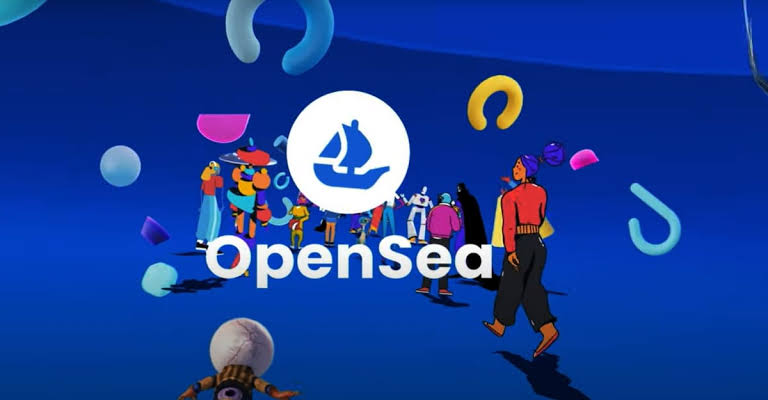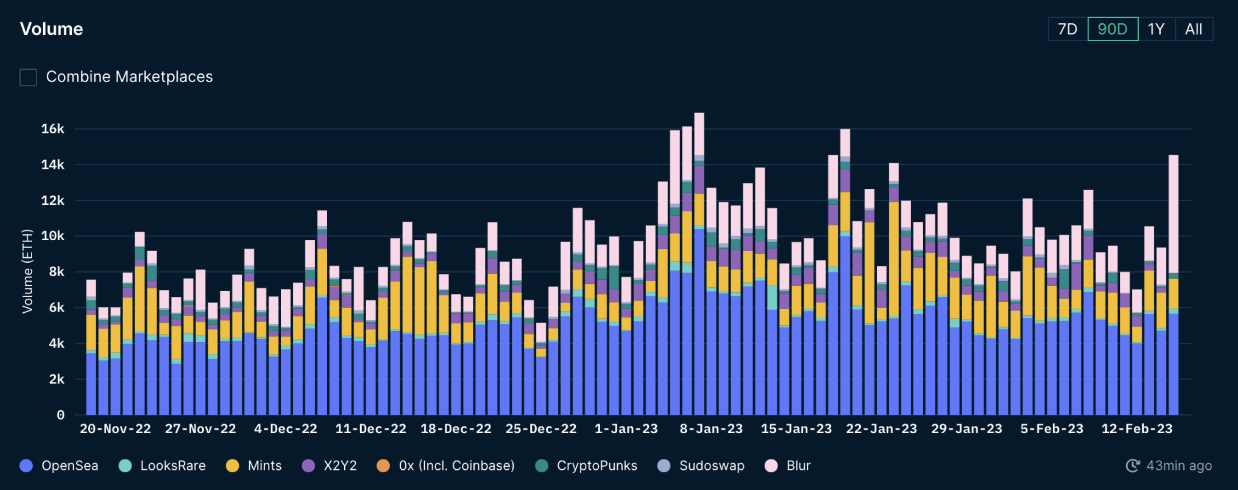NFT marketplace Blur has exceeded OpenSea in daily ETH trading volume because consumers are searching for a trading environment that benefits them and they expect higher returns on their NFT investments.

OpenSea, a significant nonfungible token (NFT) marketplace, announced a significant restructuring centered on lower platform costs and higher creator earnings as competing markets continue to siphon off its formerly monopolistic user base.
Data from Nansen indicates that on February 18, NFT marketplace Blur topped OpenSea in daily Ether ETH trading volume as customers seek a trading environment that is advantageous to them in anticipation of higher returns on their NFT investments.

OpenSea responded by announcing three significant adjustments in an effort to retain its customers who were migrating. The measures include introducing optional creator earnings, a temporary 0% fee, and leniency for other operators.
OpenSea acknowledged that it was losing customers to “NFT marketplaces that don’t fully enforce creator earnings,” and the new initiatives are an effort to regain its market leadership, it added:
“Recent events – including Blur’s decision to roll back creator earnings (even on filtered collections) and the false choice they’re forcing creators to make between liquidity on Blur or OpenSea – prove that our attempts are not working.”
OpenSea thinks it successfully protected creator revenues on all collections while reiterating its support for Operator Filter, a feature designed to assist creators in securing their income from the selling of their work. However this filter deliberately disallowed recommendations from marketplaces with the same policies.

Blur’s new royalty policy, which highlights the variations in royalty payment alternatives between its platform and OpenSea, can be credited with the company’s dominance in daily trading volume. It said:
“OpenSea’s current royalty policy prevents collections from being able to earn royalties everywhere. They have cited various reasons for this (see FAQ), but the end result is that creators are limited to earning royalties on only one platform at a time.”
Community members emphasized the value of competition in the sector amid the royalty battle between the two marketplaces. If it weren’t for marketplaces with zero royalties, more significant firms like OpenSea would eventually raise their fees, which would harm authors and collectors.
Furthermore, OpenSea intends to carry out further testing of the concept to determine what functions best for the organization and the community. If OpenSea is successful in gathering its lost clients, community members anticipate that it would likely boost its platform fees in the future—a predatory approach frequently observed in markets with less competition.